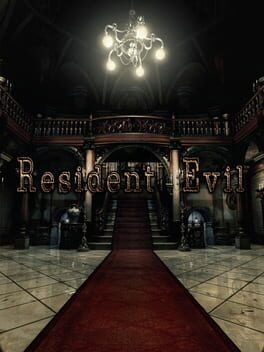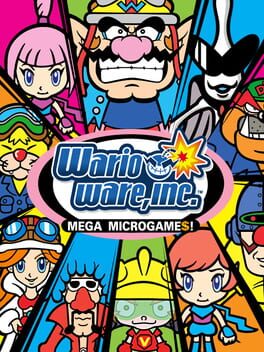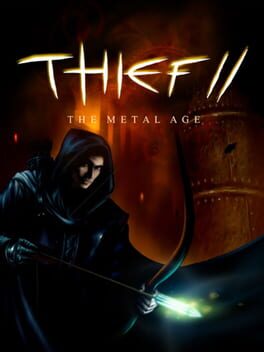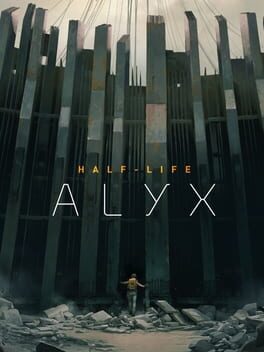38 reviews liked by haygator
Resident Evil 2
2019
Nightmare logic and 'nightmarish' are often reserved for works that evoke forces of total disorder that are malicious and occult and cosmic in scope. But these kinds of nightmares are thrilling, immediate, and easy to recognise as phantasms on waking up. I love these nightmares: they turn you into the happy audience of your subconscious' greatest horror film. There is always great catharsis to a descent into hell! The worst nightmares are the ones that are so ordinary that they are basically indistinguishable from daily life, that because they feel like a bad day rob you of the feeling of having slept. These nightmares sometimes recall situations and settings from your ordinary life, and even when they don't they capture its mundane processes and anxieties. If the former nightmares amplify these things to an extravagant scale, these ones cut through and distil the essence of life's exhaustion. Resident Evil 2 is this nightmare of ordinary life. It follows nightmare logic because it is deeply paranoid, and it is nightmarish because it is both very boring and very stressful.
Anyone who has ever worked in hospitality or customer service might think fast paced first person games distinctly nightmarish in their evocation of the horror of daily life. There is a universal alienation to moving through a crowd and realising that nobody sees anyone else, but what's worse is thousands of faces rushing directly toward you and you specifically and wanting something from you. Resident Evil 2 though is working as a teacher or administrator, performing as best you can with all eyes on you, putting out fires when they come up, and knowing that however well you resolve an issue in the moment you will never be on top of things. You are employed to make disorder manageable for minutes at a time from within the eternal disorder of human affairs. If things could ever be permanently ordered not only would you be out of a job, but humanity would cease to be human. The horror of daily disorder is also the beauty of ordinary life. I have nightmares about students challenging me in front of the class, but that's only because this can and should happen. If my lesson plans could be uploaded into the heads of a passive class-body, this would eliminate the need for interaction as well as thought. Teaching and learning is not about the absorption of information, but about thinking as a creative and disruptive process. If nothing is changing, then no thought is occurring. I have also had nightmares about online systems crashing, and databases dying with them. But the absence of interruption in an online system means that either the system is not being used, or that its uses have been exhausted. And if these databases could not be corrupted, they could also not be read. It is not a metaphor but a fact that disorder is at the essence of any working system, and noise is the essence of all transmission.
Both administration and pedagogy conduct disorder to maintain or further productive ends. Games are the same: disorder and precarity are the essence of the videogame's interplay of human and machinic agencies that test and collide and alter one another toward new and unforeseen outcomes. When outcomes are totally predictable, when disorder is under control, this means a victory to either the human or the game system, and this is when the game ceases to be a game. The system stops producing novelty when it is under control, and this happens when its heterogeneous components do not participate but dominate one another. Resident Evil 2 can be mastered by those players deeply committed to imposing order on systems, but as a game it works hard to maintain nightmarish precarity. The only thing inevitable about it is things, however under control they might appear, inevitably going the other way. It never makes the player feel entirely helpless like other survival horror games, and it never gives them a sense of triumph like other games with an atmosphere so dire. It is not about defeat or triumph or anything where things can be dominated or overcome. It is instead about just temporarily managing disorder before the cards are redrawn and disorder must once again be negotiated. The machine reads the player and the player reads the machine, and they both continue to adapt to and challenge one another.
This ongoing mind-game might sound strange because zombies are stupid, and the zombies in Resident Evil 2 are exceptionally zombie-ish, which means exceptionally stupid. But again Resident Evil 2's brand of nightmare is not always about the specifics of its settings or entities but instead life's quotidian processes and anxieties. Its horror is one of the failures of administration. The player can never be entirely on top of things, and the only way to progress is to memorise things and forget things and plan for things and when it inevitably happens, adapt to it all going wrong. It is to try and remember and account for all your mistakes and failures, and to manage as best you can the sinking ship of your best intentions. The introduction of Mr X and Lickers is not so much about introducing more mechanically powerful foes, but undoing your meagre efforts to put things into order. No one thing is scary or even difficult, but the game dynamically works obstacles, enemies, and affordances into a series of ad hoc recipes where the goal is always player frustration. Having Mr X walk into a room where you have things basically under control (one zombie with its legs blown off, another in the corner, another stunned, you're on low health but you know where you're going) is like having a supervisor watching you work. And sneaking past a Licker, then past a distracted zombie, and having Mr X walk in is like having a car backfire outside and wake up the baby you swear to god you almost, finally, had to sleep. Because you can never directly respond to Mr X, so continues an eternal chase through the same god damn corridors where hands are once again played with the hope of a new outcome. Because we memorise certain routes and blindspots and dangers, Resident Evil 2 makes the case that repetition in systems might lead to a sense of familiarity, but it also always leads to difference.
Resident Evil 2 is also the scariest game for how it so beautifully handles slow-moving frustration within a space that a single stray bullet can throw everything into disarray. Zombies are not intrinsically scary but they are always uncanny; Romero's zombies move slow to mimic the world of humans undone by capitalism and Fulci's present the ultimate desecration of human life and the divine order of our belief systems. Both inhabit films that feel zombie-like: sluggish, falling apart, and singularly focussed on devouring the future. Resident Evil 2 is smooth, albeit circular and obsessive. Here the zombies are obstacles for management, and the horror of managing the impossible makes them scary. It is a game made for fans of the series, and fans of the series are big fans. It's a cult franchise that's also enormously popular; it's a cult on the scale of a supermarket or mall chain. Like the zombie it returns from the dead and moves with obsessive purpose. As such it is made to be played twice 'officially', four times 'thoroughly', and a hundred times 'realistically'. It gets less scary the more it is repeated, because repetition gives the space to experiment with new ideas and outcomes. The second play is more laborious than anything else because it involves re-seeing what once scared you, this time as blank obstacles. The third however unlocks a new kind of obsession in the player's brain, where the pain and joy of managing disorder comes back stronger than ever before. It takes about fifteen hours to complete, but like the zombie it cannot die an ordinary death and is never really over.
Resident Evil 2's gore is not affecting, but the lighting and always obscured sight-lines return the player to this infantile state where they are afraid of the dark. We play as the detached adult, dealing with problems systematically, playing Tetris with keys and herbs, but we are also aways the irrational child hiding under the blankets from the boogeyman. Both are always at play: one does not contradict the other. Resident Evil Biohazard plays this up well by swapping out Mr X for Jack Baker, the lunatic father looking for you, his 'son' who won't stop slamming doors and ruining dinner and staying out past curfew. X is interesting because when you can only hear him he functions as a Michael Myers-esque 'shape', or abstraction as persistent as the shadows at your feet. But then when you see him he looks like a fucking idiot. He is frightening because of how he upsets your plans, because of how he reminds you that no amount of trying will ever allow you to control your surroundings, but he is also terrifying because he looks like such a fucking idiot. Commonsense would suggest he'd be more ominous the more abstract his appearance, but the idiot physicality of his bozo suit and hat and weirdly serene face is actually chilling because it's also funny.
The screwball comedy of this game is also one of its greatest strengths because it keeps things terrifying, and rubs your mistakes in your face as if to say how this whole thing's your fault. I had to laugh out loud when I returned to this room to pick something up that I had not been into in a week, and there were like five zombies I had not dealt with and had forgotten about and it scared the shit out of me, then Mr X entered from the other side with perfect comic timing like Honey I'm home what's with all this mess!. It was like getting ready to go on holiday and at the last minute remembering that final little job you had to get out of the way but it was sent to that other inbox you're not really checking any more because you've tapped out and you just want to see the water and sit in the grass for a bit but now there's like a hundred emails in there that get progressively less polite as they add up.
Life is shit because it's boring and hard and unpredictable all at the same time but it's also really beautiful for the same reasons and is worth doing forever. This is Resident Evil 2's philosophy, and also what makes it such a brilliant game.
Anyone who has ever worked in hospitality or customer service might think fast paced first person games distinctly nightmarish in their evocation of the horror of daily life. There is a universal alienation to moving through a crowd and realising that nobody sees anyone else, but what's worse is thousands of faces rushing directly toward you and you specifically and wanting something from you. Resident Evil 2 though is working as a teacher or administrator, performing as best you can with all eyes on you, putting out fires when they come up, and knowing that however well you resolve an issue in the moment you will never be on top of things. You are employed to make disorder manageable for minutes at a time from within the eternal disorder of human affairs. If things could ever be permanently ordered not only would you be out of a job, but humanity would cease to be human. The horror of daily disorder is also the beauty of ordinary life. I have nightmares about students challenging me in front of the class, but that's only because this can and should happen. If my lesson plans could be uploaded into the heads of a passive class-body, this would eliminate the need for interaction as well as thought. Teaching and learning is not about the absorption of information, but about thinking as a creative and disruptive process. If nothing is changing, then no thought is occurring. I have also had nightmares about online systems crashing, and databases dying with them. But the absence of interruption in an online system means that either the system is not being used, or that its uses have been exhausted. And if these databases could not be corrupted, they could also not be read. It is not a metaphor but a fact that disorder is at the essence of any working system, and noise is the essence of all transmission.
Both administration and pedagogy conduct disorder to maintain or further productive ends. Games are the same: disorder and precarity are the essence of the videogame's interplay of human and machinic agencies that test and collide and alter one another toward new and unforeseen outcomes. When outcomes are totally predictable, when disorder is under control, this means a victory to either the human or the game system, and this is when the game ceases to be a game. The system stops producing novelty when it is under control, and this happens when its heterogeneous components do not participate but dominate one another. Resident Evil 2 can be mastered by those players deeply committed to imposing order on systems, but as a game it works hard to maintain nightmarish precarity. The only thing inevitable about it is things, however under control they might appear, inevitably going the other way. It never makes the player feel entirely helpless like other survival horror games, and it never gives them a sense of triumph like other games with an atmosphere so dire. It is not about defeat or triumph or anything where things can be dominated or overcome. It is instead about just temporarily managing disorder before the cards are redrawn and disorder must once again be negotiated. The machine reads the player and the player reads the machine, and they both continue to adapt to and challenge one another.
This ongoing mind-game might sound strange because zombies are stupid, and the zombies in Resident Evil 2 are exceptionally zombie-ish, which means exceptionally stupid. But again Resident Evil 2's brand of nightmare is not always about the specifics of its settings or entities but instead life's quotidian processes and anxieties. Its horror is one of the failures of administration. The player can never be entirely on top of things, and the only way to progress is to memorise things and forget things and plan for things and when it inevitably happens, adapt to it all going wrong. It is to try and remember and account for all your mistakes and failures, and to manage as best you can the sinking ship of your best intentions. The introduction of Mr X and Lickers is not so much about introducing more mechanically powerful foes, but undoing your meagre efforts to put things into order. No one thing is scary or even difficult, but the game dynamically works obstacles, enemies, and affordances into a series of ad hoc recipes where the goal is always player frustration. Having Mr X walk into a room where you have things basically under control (one zombie with its legs blown off, another in the corner, another stunned, you're on low health but you know where you're going) is like having a supervisor watching you work. And sneaking past a Licker, then past a distracted zombie, and having Mr X walk in is like having a car backfire outside and wake up the baby you swear to god you almost, finally, had to sleep. Because you can never directly respond to Mr X, so continues an eternal chase through the same god damn corridors where hands are once again played with the hope of a new outcome. Because we memorise certain routes and blindspots and dangers, Resident Evil 2 makes the case that repetition in systems might lead to a sense of familiarity, but it also always leads to difference.
Resident Evil 2 is also the scariest game for how it so beautifully handles slow-moving frustration within a space that a single stray bullet can throw everything into disarray. Zombies are not intrinsically scary but they are always uncanny; Romero's zombies move slow to mimic the world of humans undone by capitalism and Fulci's present the ultimate desecration of human life and the divine order of our belief systems. Both inhabit films that feel zombie-like: sluggish, falling apart, and singularly focussed on devouring the future. Resident Evil 2 is smooth, albeit circular and obsessive. Here the zombies are obstacles for management, and the horror of managing the impossible makes them scary. It is a game made for fans of the series, and fans of the series are big fans. It's a cult franchise that's also enormously popular; it's a cult on the scale of a supermarket or mall chain. Like the zombie it returns from the dead and moves with obsessive purpose. As such it is made to be played twice 'officially', four times 'thoroughly', and a hundred times 'realistically'. It gets less scary the more it is repeated, because repetition gives the space to experiment with new ideas and outcomes. The second play is more laborious than anything else because it involves re-seeing what once scared you, this time as blank obstacles. The third however unlocks a new kind of obsession in the player's brain, where the pain and joy of managing disorder comes back stronger than ever before. It takes about fifteen hours to complete, but like the zombie it cannot die an ordinary death and is never really over.
Resident Evil 2's gore is not affecting, but the lighting and always obscured sight-lines return the player to this infantile state where they are afraid of the dark. We play as the detached adult, dealing with problems systematically, playing Tetris with keys and herbs, but we are also aways the irrational child hiding under the blankets from the boogeyman. Both are always at play: one does not contradict the other. Resident Evil Biohazard plays this up well by swapping out Mr X for Jack Baker, the lunatic father looking for you, his 'son' who won't stop slamming doors and ruining dinner and staying out past curfew. X is interesting because when you can only hear him he functions as a Michael Myers-esque 'shape', or abstraction as persistent as the shadows at your feet. But then when you see him he looks like a fucking idiot. He is frightening because of how he upsets your plans, because of how he reminds you that no amount of trying will ever allow you to control your surroundings, but he is also terrifying because he looks like such a fucking idiot. Commonsense would suggest he'd be more ominous the more abstract his appearance, but the idiot physicality of his bozo suit and hat and weirdly serene face is actually chilling because it's also funny.
The screwball comedy of this game is also one of its greatest strengths because it keeps things terrifying, and rubs your mistakes in your face as if to say how this whole thing's your fault. I had to laugh out loud when I returned to this room to pick something up that I had not been into in a week, and there were like five zombies I had not dealt with and had forgotten about and it scared the shit out of me, then Mr X entered from the other side with perfect comic timing like Honey I'm home what's with all this mess!. It was like getting ready to go on holiday and at the last minute remembering that final little job you had to get out of the way but it was sent to that other inbox you're not really checking any more because you've tapped out and you just want to see the water and sit in the grass for a bit but now there's like a hundred emails in there that get progressively less polite as they add up.
Life is shit because it's boring and hard and unpredictable all at the same time but it's also really beautiful for the same reasons and is worth doing forever. This is Resident Evil 2's philosophy, and also what makes it such a brilliant game.
Resident Evil 2
2019
"𝚃𝚑𝚎 𝚄𝚖𝚋𝚛𝚎𝚕𝚕𝚊 𝙲𝚘𝚛𝚙𝚘𝚛𝚊𝚝𝚒𝚘𝚗'𝚜 𝚜𝚎𝚌𝚛𝚎𝚝 𝚕𝚊𝚋𝚘𝚛𝚊𝚝𝚘𝚛𝚢, "𝙽𝙴𝚂𝚃" — 𝚝𝚑𝚎 𝚜𝚘𝚞𝚛𝚌𝚎 𝚘𝚏 𝚁𝚊𝚌𝚌𝚘𝚘𝚗 𝙲𝚒𝚝𝚢'𝚜 𝚗𝚒𝚐𝚑𝚝𝚖𝚊𝚛𝚎.
𝙷𝚊𝚟𝚒𝚗𝚐 𝚖𝚊𝚍𝚎 𝚒𝚝 𝚍𝚘𝚠𝚗 𝚝𝚘 𝙽𝙴𝚂𝚃, 𝙻𝚎𝚘𝚗 𝚖𝚞𝚜𝚝 𝚗𝚘𝚠 𝚏𝚒𝚗𝚍 𝚝𝚑𝚎 𝚖𝚘𝚜𝚝 𝚍𝚊𝚗𝚐𝚎𝚛𝚘𝚞𝚜 𝚋𝚒𝚘𝚠𝚎𝚊𝚙𝚘𝚗 𝚒𝚗 𝚑𝚒𝚜𝚝𝚘𝚛𝚢, 𝚝𝚑𝚎 𝙶-𝚅𝚒𝚛𝚞𝚜.
𝙻𝚎𝚘𝚗 𝚋𝚎𝚕𝚒𝚎𝚟𝚎𝚜 𝚝𝚑𝚊𝚝 𝚒𝚏 𝚑𝚎 𝚐𝚎𝚝𝚜 𝚑𝚒𝚜 𝚑𝚊𝚗𝚍𝚜 𝚘𝚗 𝚒𝚝, 𝚑𝚎 𝚌𝚊𝚗 𝚖𝚊𝚔𝚎 𝚜𝚞𝚛𝚎 𝚓𝚞𝚜𝚝𝚒𝚌𝚎 𝚒𝚜 𝚜𝚎𝚛𝚟𝚎𝚍."
I had the pleasure of watching Speed for the first time earlier this year, and I enjoyed it very much. My favourite thing about the film was Keanu Reeves, who played the role of the hero, Jack Traven. Jack is a naively good-spirited cop who talks down crazed gunmen via the appeal of "c'mon, we're just dudes... chillin' out together...", an honest babyfaced fella who is more concerned with saving old ladies in wheelchairs at the side of the road than he is with blowing off the heads of terrorists from lands far away. While deification of the great Keanu is obviously one of the most overplayed bits in the history of the internet, every cliche has to come from somewhere - and it's easy to see why we worship a guy who has the talent to make a cop so damn likable.
It goes without saying that no police officer is innocent, but I don't think that means mean every person behind a badge is irredeemable. Perhaps a contentious statement, but I find it too hard to believe - too hard to reckon with, even - that there isn't a naive subset of the force who got into the job because they genuinely wanted to protect goodness in this world. This is a theme that Resident Evil 2 deals with in surprising nuance for a game about a big zombie in a fedora who can walk through walls. Coming hot off a replay of the Stallonesque Resident Evil 4, the most fascinating thing about Resident Evil 2 to me now is how the game puts discernible effort into its First Blood, (re)building Leon S. Kennedy as a person who begins adult life as nothing more than a Saved By The Bell extra in a windbreaker, a cherubic little have-a-go himbo hero who is transposed through capitalist-realist circumstance into a vengeful terminator who ends up clenching his kevlar-gloved fists in the R.P.D.'s suit of armour as he comes to realise that even a global viral outbreak won't change the system.
𝙻𝚎𝚘𝚗: 𝙸𝚝’𝚜 𝚐𝚘𝚒𝚗𝚐 𝚝𝚘 𝚝𝚑𝚎 𝙵𝙱𝙸.
𝙰𝚗𝚗𝚎𝚝𝚝𝚎: ...𝚈𝚘𝚞 𝚝𝚛𝚞𝚜𝚝 𝚝𝚑𝚊𝚝 𝚋𝚒𝚝𝚌𝚑?
As Shinji Mikami alluded to in an interview, Capcom has gradually tightened the bolts that govern how the goofiness and scariness of these games interact and intermingle with each new entry in the franchise. In this installment, I think that's best exemplified in Leon's relationship with Ada. She begins the story in distant sunglasses that eye-roll deadpan disbelief at some of Leon's worst witticisms and navietes, but is ultimately charmed by his earnest nature, granting him the status of co-conspirator (at least in some matters) in a way that kinda reminds me how the uptight local antiheroes of One Piece arcs often end up dancing to the beat of Monkey D. Luffy's revolutionary drum once they come to appreciate just how stupidly heroic he really is. Ada is a New Game++ life-player who's seen the world's garbage at its most toxic, but even the most cynical of gaming veterans can't resist pumping their fists when Leon tries an unconvincing "Chew on that, you overgrown son of a bitch!" after stuffing an alligator's mouth full of explosive gas canisters. It's a relatively small thing in the grand scheme of a Resident Evil's world, but I think it goes a long way towards making the player feel like a character's protector and guide - which is important in a game that is explicitly about the horror of survival.
Mechanically I don't have a whole lot to say about how Resident Evil 2 plays because minusforever already wrote the book on this game in 2021, so lemme just call out a small detail I really appreciated here in comparison to Silent Hill 2, which I was playing at the exact same time - it's called the "triple trip". Like a foolhardy teenager trying to carry all his mother's shopping back from the car in one journey, one of my favourite things about the way this game's puzzle box unfolds is the constant opportunities to score three or more objectives in a single movement, executing on a well-laid plan like a chess master strapped with a desert eagle. For years I've abhorred survival horror and adventure games that force the player to go Point A<->Point B<->Point A<->Point B with individual key items, and it seems the designers of Resident Evil 2 have too. Almost every pairing of item and item-hole can be compressed into discrete sequences that call to mind the simplification of an algebra equation (if algebra was intermittently disrupted by a cancerous demon wrapping its tendrils around your neck), and the way the game enables these condensements - by showing you as much of the map as possible before handing over the first piece that will enable you to master a series of unlockings - is nothing short of masterful. Gonna be replaying this game for a while to come.
𝙷𝚊𝚟𝚒𝚗𝚐 𝚖𝚊𝚍𝚎 𝚒𝚝 𝚍𝚘𝚠𝚗 𝚝𝚘 𝙽𝙴𝚂𝚃, 𝙻𝚎𝚘𝚗 𝚖𝚞𝚜𝚝 𝚗𝚘𝚠 𝚏𝚒𝚗𝚍 𝚝𝚑𝚎 𝚖𝚘𝚜𝚝 𝚍𝚊𝚗𝚐𝚎𝚛𝚘𝚞𝚜 𝚋𝚒𝚘𝚠𝚎𝚊𝚙𝚘𝚗 𝚒𝚗 𝚑𝚒𝚜𝚝𝚘𝚛𝚢, 𝚝𝚑𝚎 𝙶-𝚅𝚒𝚛𝚞𝚜.
𝙻𝚎𝚘𝚗 𝚋𝚎𝚕𝚒𝚎𝚟𝚎𝚜 𝚝𝚑𝚊𝚝 𝚒𝚏 𝚑𝚎 𝚐𝚎𝚝𝚜 𝚑𝚒𝚜 𝚑𝚊𝚗𝚍𝚜 𝚘𝚗 𝚒𝚝, 𝚑𝚎 𝚌𝚊𝚗 𝚖𝚊𝚔𝚎 𝚜𝚞𝚛𝚎 𝚓𝚞𝚜𝚝𝚒𝚌𝚎 𝚒𝚜 𝚜𝚎𝚛𝚟𝚎𝚍."
I had the pleasure of watching Speed for the first time earlier this year, and I enjoyed it very much. My favourite thing about the film was Keanu Reeves, who played the role of the hero, Jack Traven. Jack is a naively good-spirited cop who talks down crazed gunmen via the appeal of "c'mon, we're just dudes... chillin' out together...", an honest babyfaced fella who is more concerned with saving old ladies in wheelchairs at the side of the road than he is with blowing off the heads of terrorists from lands far away. While deification of the great Keanu is obviously one of the most overplayed bits in the history of the internet, every cliche has to come from somewhere - and it's easy to see why we worship a guy who has the talent to make a cop so damn likable.
It goes without saying that no police officer is innocent, but I don't think that means mean every person behind a badge is irredeemable. Perhaps a contentious statement, but I find it too hard to believe - too hard to reckon with, even - that there isn't a naive subset of the force who got into the job because they genuinely wanted to protect goodness in this world. This is a theme that Resident Evil 2 deals with in surprising nuance for a game about a big zombie in a fedora who can walk through walls. Coming hot off a replay of the Stallonesque Resident Evil 4, the most fascinating thing about Resident Evil 2 to me now is how the game puts discernible effort into its First Blood, (re)building Leon S. Kennedy as a person who begins adult life as nothing more than a Saved By The Bell extra in a windbreaker, a cherubic little have-a-go himbo hero who is transposed through capitalist-realist circumstance into a vengeful terminator who ends up clenching his kevlar-gloved fists in the R.P.D.'s suit of armour as he comes to realise that even a global viral outbreak won't change the system.
𝙻𝚎𝚘𝚗: 𝙸𝚝’𝚜 𝚐𝚘𝚒𝚗𝚐 𝚝𝚘 𝚝𝚑𝚎 𝙵𝙱𝙸.
𝙰𝚗𝚗𝚎𝚝𝚝𝚎: ...𝚈𝚘𝚞 𝚝𝚛𝚞𝚜𝚝 𝚝𝚑𝚊𝚝 𝚋𝚒𝚝𝚌𝚑?
As Shinji Mikami alluded to in an interview, Capcom has gradually tightened the bolts that govern how the goofiness and scariness of these games interact and intermingle with each new entry in the franchise. In this installment, I think that's best exemplified in Leon's relationship with Ada. She begins the story in distant sunglasses that eye-roll deadpan disbelief at some of Leon's worst witticisms and navietes, but is ultimately charmed by his earnest nature, granting him the status of co-conspirator (at least in some matters) in a way that kinda reminds me how the uptight local antiheroes of One Piece arcs often end up dancing to the beat of Monkey D. Luffy's revolutionary drum once they come to appreciate just how stupidly heroic he really is. Ada is a New Game++ life-player who's seen the world's garbage at its most toxic, but even the most cynical of gaming veterans can't resist pumping their fists when Leon tries an unconvincing "Chew on that, you overgrown son of a bitch!" after stuffing an alligator's mouth full of explosive gas canisters. It's a relatively small thing in the grand scheme of a Resident Evil's world, but I think it goes a long way towards making the player feel like a character's protector and guide - which is important in a game that is explicitly about the horror of survival.
Mechanically I don't have a whole lot to say about how Resident Evil 2 plays because minusforever already wrote the book on this game in 2021, so lemme just call out a small detail I really appreciated here in comparison to Silent Hill 2, which I was playing at the exact same time - it's called the "triple trip". Like a foolhardy teenager trying to carry all his mother's shopping back from the car in one journey, one of my favourite things about the way this game's puzzle box unfolds is the constant opportunities to score three or more objectives in a single movement, executing on a well-laid plan like a chess master strapped with a desert eagle. For years I've abhorred survival horror and adventure games that force the player to go Point A<->Point B<->Point A<->Point B with individual key items, and it seems the designers of Resident Evil 2 have too. Almost every pairing of item and item-hole can be compressed into discrete sequences that call to mind the simplification of an algebra equation (if algebra was intermittently disrupted by a cancerous demon wrapping its tendrils around your neck), and the way the game enables these condensements - by showing you as much of the map as possible before handing over the first piece that will enable you to master a series of unlockings - is nothing short of masterful. Gonna be replaying this game for a while to come.
Disco Elysium
2019
Max Payne 3
2012
Destiny 2
2017
i remember seeing the trailer for this game for the first time while watching a football game being like HHHHHHOOOOOOLLLLYYYY SHHHHHHIIITTEEE!!!! i preordered it and got a dumbass poster and a Cayed figure that immediately broke after it fell off my shelf. but i didn't care i played this game even longer than the first game and got addicted to it. i preordered all of the expansions and everything,
Until forsaken came out
that's when it hit me. that's when i opened my eyes and realized what i was doing, what i had become. i was just another soulless consumer pumping in hundreds of hours in a game that well wasnt worth my time, i was just another sucker that got bated and hooked by the MMO RPG gameplay loop that did nothing but waste my time and affect my health. i backed away and vowed to myself to never play another MMO RPG again. after that i found my love for retro games. i was actually experiencing art and expanding my horizon in ways i never thought i could. this game taught me what awful story telling and gameplay was and what an addicting gameplay loop looks like. and you bet your ass i'm never coming back
Until forsaken came out
that's when it hit me. that's when i opened my eyes and realized what i was doing, what i had become. i was just another soulless consumer pumping in hundreds of hours in a game that well wasnt worth my time, i was just another sucker that got bated and hooked by the MMO RPG gameplay loop that did nothing but waste my time and affect my health. i backed away and vowed to myself to never play another MMO RPG again. after that i found my love for retro games. i was actually experiencing art and expanding my horizon in ways i never thought i could. this game taught me what awful story telling and gameplay was and what an addicting gameplay loop looks like. and you bet your ass i'm never coming back
Resident Evil
2014
For all the survival horror that I've dabbled with over the past few years, this is the title that made me the most cognizant of the "survival" aspect. It’s this elaborate balancing act of juggling every limited resource at your disposal: ammo for bosses and enemies, kerosene to burn necessary corpses after downing zombies to secure routes, health items as fail safes, ink ribbons to save when deemed necessary, and most importantly, inventory space to minimize backtracking with the bare minimum (knowing what you’re likely to use up as you progress so you have enough room to forage). What’s key to all of this is that it’s often worthwhile not downing zombies at all to not only conserve ammo, but also prevent the possibility of a more dangerous Crimson Head when kerosene is not only limited but requires further planning for refueling and additional inventory slots (lighter + flask). It’s punishing, but in the best way possible; damage and death become instruments of observation to properly plan out backtracking and understanding exactly what goes where. Perhaps my favorite example of this in action was abusing the various doors in a room connecting the shed corridor with a safe room; by quickly going in and out of the entrances, I could not only reset a Hunter’s awareness and spawn, but also place myself in a position where I could immediately run at the Hunter to proc an attack and slip past every time. It certainly helps, regardless, that there’s plenty of leeway for careful experimentation, thanks to all of the scattered health items about the mansion (granted, often requiring careful planning to optimize grounded herbs in rooms and keeping enough inventory space open for trips). It’s also fairly firm at setting its boundaries by telegraphing enemy placement far in advance with rattling doors/windows to signify enemy shifts, background moaning when a zombie is present in the room, and even environmental noises like crunching fallen glass to make up for the lack of vision with fixed camera angles.
That doesn’t mean, however, that the horror has been neglected. If anything, I found this game far more unsettling beyond sudden surprises. It’s not so much the fear of the unexpected, but rather, the lingering fear of waiting for the other shoe to drop while you’re expecting the unexpected. They're scripted events, sure, but they're well disguised thanks to every room often acting as its own isolated microcosm without the presence of the protagonist (not to mention that it's pretty easy to get caught up in the middle of things and forget about each individual room, which makes it all the more viscerally shocking) and there's still a feeling of player control with careful planning and routing. This fits perfectly alongside its core philosophy of risk versus reward, the existential dread of having to backtrack through several zombie infested corridors when you realize you forgot an inventory key and having to constantly and deliberately throw yourself into tight situations just to save another trip across the map. It’s what makes this such an ideal speedrunning game: not necessarily because of satisfying movement or combat, but because Resident Evil is really a game about time management. Every second wasted tromping through another passageway is time that could contribute to a zombie reviving as a Crimson Head or another second spent replaying if you’re not willing to use that extra ink ribbon. The primal fear arising from guaranteed safety as a fleeting resource lends perfectly to the need for optimization; in that sense, pressuring players into constantly checking the map to avoid confrontations and getting lost goes hand in hand with spending as little time as possible, for nothing is more terrifying than having to rewind the simulations in your head for another go.
I can’t help but feel that every detail of this game was thought down to the bone, even the original tank control scheme. That’s right, I’m actually defending tank controls for once in my life… how the turns have tabled. Dodging enemies can seem tougher, but most are conveniently placed near corners and more open areas to give you the room necessary to dodge with a backstep/quick burst to the side if you’re willing to wait and bait committal attacks. More importantly, using tank controls lets you maintain your direction and momentum while running through different camera angles of a room. With alternate controls, you most likely have to hold down the joystick to maintain velocity and upon a new camera angle, will have to quickly retap to keep the intended direction with each new angle. This becomes paramount in tighter chase sequences, where even slight moments of stagnation can lead to damage/death, as well as one timed puzzle where I had to press a button and then quickly run through several fixed angles to get into position to push a statue. In addition, I found it rather difficult to reliably walk (as opposed to running full-time) with alternate controls over tank controls, which can absolutely backfire during an end-game sequence where running for a prolonged period can trigger an explosion during nitro delivery. Therefore, the circumstances created by the environment not only are doable with tank controls, but in fact necessitate the usage of such controls.
Everything just comes together as this tightly designed package. Puzzles have fairly evident tells and can be figured out with careful observation of the surroundings while facilitating the inventory scramble that plays so heavily to the game’s survival elements. The lore never feels overbearing or excessive, and does a great job weaving in hints for crafting approaches and figuring out exactly what has to be accomplished. There’s never an explicit timer on screen outside of the final ending segment, yet the game is great at creating circumstances where you’re forced to make decisions on the fly from environmental stressors and considering the mansion not just on a per room basis, but as a sum of its parts. I genuinely don’t think I have any gripes; it was more than happy to beat me down, but understanding its parameters to scale up against its challenges was an incredibly fulfilling experience. I’d damn well say that REmake is the most focused and cohesive survival horror experience I’ve ever played. Not just a perfect remake, but perhaps a practically perfect game.
That doesn’t mean, however, that the horror has been neglected. If anything, I found this game far more unsettling beyond sudden surprises. It’s not so much the fear of the unexpected, but rather, the lingering fear of waiting for the other shoe to drop while you’re expecting the unexpected. They're scripted events, sure, but they're well disguised thanks to every room often acting as its own isolated microcosm without the presence of the protagonist (not to mention that it's pretty easy to get caught up in the middle of things and forget about each individual room, which makes it all the more viscerally shocking) and there's still a feeling of player control with careful planning and routing. This fits perfectly alongside its core philosophy of risk versus reward, the existential dread of having to backtrack through several zombie infested corridors when you realize you forgot an inventory key and having to constantly and deliberately throw yourself into tight situations just to save another trip across the map. It’s what makes this such an ideal speedrunning game: not necessarily because of satisfying movement or combat, but because Resident Evil is really a game about time management. Every second wasted tromping through another passageway is time that could contribute to a zombie reviving as a Crimson Head or another second spent replaying if you’re not willing to use that extra ink ribbon. The primal fear arising from guaranteed safety as a fleeting resource lends perfectly to the need for optimization; in that sense, pressuring players into constantly checking the map to avoid confrontations and getting lost goes hand in hand with spending as little time as possible, for nothing is more terrifying than having to rewind the simulations in your head for another go.
I can’t help but feel that every detail of this game was thought down to the bone, even the original tank control scheme. That’s right, I’m actually defending tank controls for once in my life… how the turns have tabled. Dodging enemies can seem tougher, but most are conveniently placed near corners and more open areas to give you the room necessary to dodge with a backstep/quick burst to the side if you’re willing to wait and bait committal attacks. More importantly, using tank controls lets you maintain your direction and momentum while running through different camera angles of a room. With alternate controls, you most likely have to hold down the joystick to maintain velocity and upon a new camera angle, will have to quickly retap to keep the intended direction with each new angle. This becomes paramount in tighter chase sequences, where even slight moments of stagnation can lead to damage/death, as well as one timed puzzle where I had to press a button and then quickly run through several fixed angles to get into position to push a statue. In addition, I found it rather difficult to reliably walk (as opposed to running full-time) with alternate controls over tank controls, which can absolutely backfire during an end-game sequence where running for a prolonged period can trigger an explosion during nitro delivery. Therefore, the circumstances created by the environment not only are doable with tank controls, but in fact necessitate the usage of such controls.
Everything just comes together as this tightly designed package. Puzzles have fairly evident tells and can be figured out with careful observation of the surroundings while facilitating the inventory scramble that plays so heavily to the game’s survival elements. The lore never feels overbearing or excessive, and does a great job weaving in hints for crafting approaches and figuring out exactly what has to be accomplished. There’s never an explicit timer on screen outside of the final ending segment, yet the game is great at creating circumstances where you’re forced to make decisions on the fly from environmental stressors and considering the mansion not just on a per room basis, but as a sum of its parts. I genuinely don’t think I have any gripes; it was more than happy to beat me down, but understanding its parameters to scale up against its challenges was an incredibly fulfilling experience. I’d damn well say that REmake is the most focused and cohesive survival horror experience I’ve ever played. Not just a perfect remake, but perhaps a practically perfect game.

















